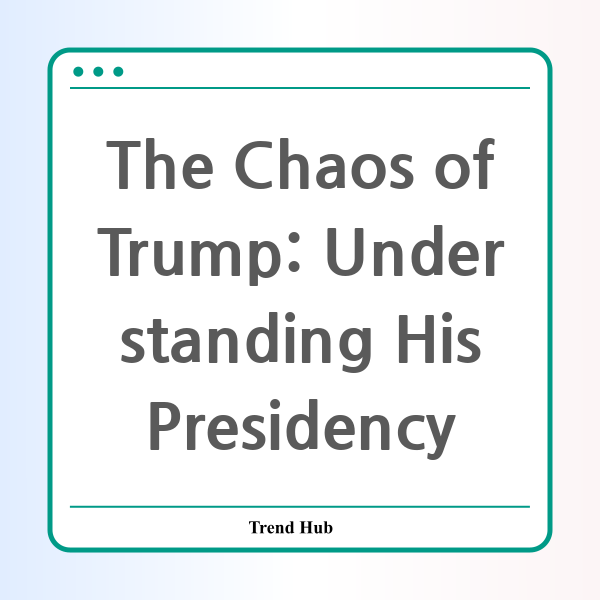* This website participates in the Amazon Affiliate Program and earns from qualifying purchases.

Is Donald Trump merely a misguided leader, or is there a deeper chaos woven into the fabric of his presidency? As we delve into the complexities of Trump's leadership style, it becomes increasingly clear that his reign is marked by a combination of narcissism, ignorance, and a troubling approach to governance that mirrors some of history's most infamous leaders.
From the beginning, Trump has been characterized by a profound detachment from the realities that govern our world. His approach can be summed up as a trade war that tests his trademark indifference to the charges of incompetence and chaos. While many may argue about the implications of his actions on the post-war trading regime and the rise of automation in America, the real question is: what does this all mean for the average American?
Consider this: Trump’s misunderstanding of fundamental economics often leads to statements that could only be described as moronic by critical standards. For example, his assertions during the pandemic about injecting bleach or his views on historical events reveal a gross lack of awareness that deeply affects policy and public perception. This ignorance is not merely a personal flaw; it is indicative of a larger issue—a leader who appears out of his depth yet refuses to acknowledge it.
Moreover, Trump embodies an extreme form of narcissism. His interactions with both allies and adversaries are not rooted in mutual respect but in a relentless competition for dominance. This mindset turns negotiations into opportunities for personal gain, where he views every interaction as a zero-sum game—if he wins, someone else must lose. This is particularly evident in trade policies, which he frames as victories while disregarding the long-term consequences for American workers.
But perhaps the darkest aspect of Trump's personality is his sociopathic tendencies. The traits often associated with sociopathy—manipulation, a lack of empathy, and a penchant for deceit—are not just character flaws; they are tools in his arsenal. In the realm of politics, these traits can manifest as policies that disregard the wellbeing of citizens for the sake of maintaining power and control.
Moreover, it is essential to recognize that Trump's sociopathy may extend into psychopathy—a condition marked by deriving pleasure from the suffering of others. This is evident in how he treats allies and opponents alike, often seeming to revel in the discord he creates. His policies, rather than being structured around the greater good, often serve as platforms for personal amusement and vindication.
So, as we observe the current political landscape, one must ask: how far can a leader like Trump take the American people down this precarious path without accountability? The fear that grips many is not just for the future of Trump’s presidency but for the very fabric of American democracy itself.
Perhaps the most alarming aspect is how some political figures and constituents continue to enable this behavior, turning a blind eye to the consequences of their blind loyalty. It raises an essential question about the very nature of leadership and responsibility in our political system. Can we continue to allow this cycle of chaos without facing the ultimate repercussions?
As we move forward, it is crucial to recognize the implications of a leader who embodies traits often found in history’s most notorious characters. Understanding these dynamics not only informs our view of the current political climate but also prepares us for a future where we demand better from those who seek to lead.
* This website participates in the Amazon Affiliate Program and earns from qualifying purchases.